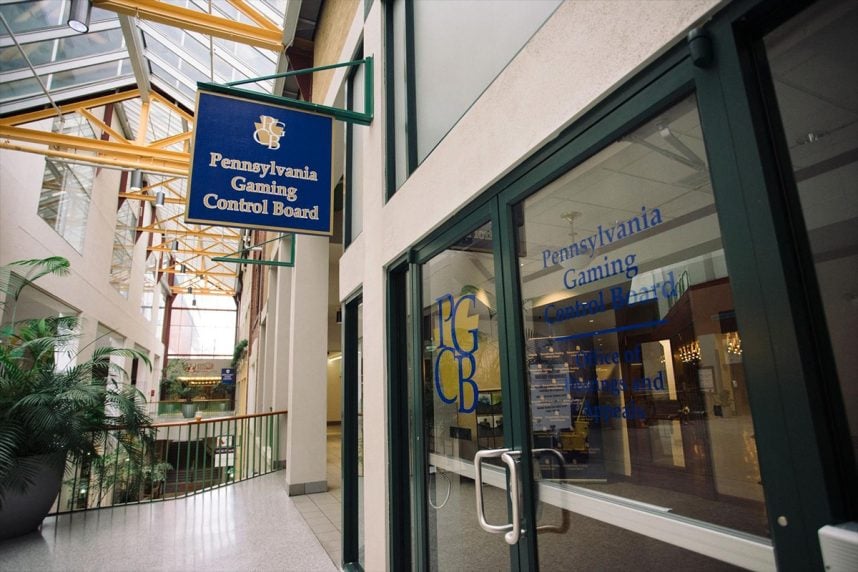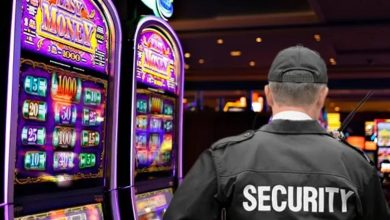Pennsylvania Gaming Management Board Clarifies Cat. 4 On line casino Bidding
The Pennsylvania Gaming Management Board (PGCB) stays engulfed in a authorized dispute over the Class 4 on line casino license it awarded in January to SC Gaming OpCo, LLC.
 The Pennsylvania Gaming Management Board workplaces in Harrisburg. The state gaming company’s authorized group is trying to clear some confusion relating to the bidding course of for Class 4 casinos. (Picture: Highlight PA)
The Pennsylvania Gaming Management Board workplaces in Harrisburg. The state gaming company’s authorized group is trying to clear some confusion relating to the bidding course of for Class 4 casinos. (Picture: Highlight PA)
SC Gaming OpCo is an entity managed by Pennsylvania businessman Ira Lubert. A Penn State alumnus and former college trustee, Lubert has partnered with the Bally’s Company to deliver a on line casino to State Faculty lower than 5 miles away from Penn State College’s foremost campus.
Cat. 4 casinos had been licensed by means of the state’s 2017 gaming growth package deal. Every Cat. 4 on line casino, also known as a “mini-casino” or “satellite tv for pc on line casino,” is afforded as much as 750 slots and an preliminary allotment of 30 desk video games, the latter requiring an extra $2.5 million payment. After a yr in operation, Cat. 4 desk sport casinos are allowed so as to add one other 10 tables.
The Cat. 4 alternatives had been initially made accessible just for entities possessing a brick-and-mortar slot concession within the commonwealth. After the bidding stalled in 2020, the PGCB welcomed particular person traders in slots licenses to bid.
Lubert was the excessive bidder throughout the state’s September 2020 Cat. 4 public sale spherical with a $10,000,101 submission. Lubert chosen the previous Macy’s division retailer on the Nittany Mall for his on line casino undertaking. The Nittany Mall is inside Faculty Township, which didn’t decide out of the Cat. 4 consideration.
Authorized Confusion
Quickly after Lubert secured his Cat. 4 license for Faculty Township, attorneys with The Cordish Corporations levied allegations that he violated the PGCB’s bidding guidelines for the mini-casinos. Cordish operates Stay! On line casino & Lodge Philadelphia and Stay! On line casino Pittsburgh in Westmoreland, the latter being a Cat. 4 property.
Cordish contends in an ongoing authorized case that Lubert fielded traders and financiers for his bid earlier than making the $10 million provide.
Cordish’s lawsuit argues that the successful bidder was required to submit the license payment on their very own. Since Lubert had allegedly orchestrated an funding group earlier than the bid, Cordish’s authorized group claims the PGCB shouldn’t have even thought of his September 2020 tender.
Lubert didn’t pay all the successful bid to the Board himself, as required by … the Gaming Act,” learn Cordish’s attraction of the PGCB awarding Lubert’s SC Gaming OpCo a Cat. 4 allow.
Newly disclosed filings from the PGCB associated to the Bally’s Nittany Mall on line casino undertaking recommend Lubert’s funds weren’t unknown. The state gaming company has been conscious all alongside that the $10 million the state company obtained from Lubert inside two days of the September 2020 public sale wasn’t solely Lubert’s money. Within the authorized paperwork, officers with the PGCB repeatedly discuss with Lubert as having “funding.”
It’s admitted that Mr. Lubert had different sources of funding for the bid, although Mr. Lubert paid the bid himself by way of a wire switch from his private checking account,” PGCB counsel wrote in response to Cordish’s petition for assessment.
On line casino.org sought an evidence from the PGCB on the matter and was advised that there’s been some confusion round how the successful bid have to be paid to the state. The state’s authorized group mentioned it’s the board’s place that the Gaming Act permits bids and initiatives to have monetary backers, as long as the funds used are topic to clear agreements and that the traders concerned are vetted.
It’s the place of the Board that the Act gives no express restrictions on how a successful bidder funds the successful bid, with the caveat that the supply of any such funds used are all the time a part of the pre-licensure investigation and may (and infrequently occasions will) end result within the licensure of economic backers as principals to the undertaking,” a short from the PGCB beforehand filed within the case defined.
“Nothing within the Gaming Act mandates the successful bidder in a Class 4 public sale to make use of his private funds — or a mortgage obtained by him, personally — to pay the successful bid quantity,” the temporary added.
Gaming Act Language
The Gaming Act certainly says nothing a couple of Cat. 4 excessive bidder being required to pay the bid alone.
Underneath Part 12.1 of the Gaming Act — Cat. 4 “Public sale Procedures” — the legislation reads, “The successful bidder shall pay to the Board the bid quantity inside two enterprise days following the public sale. Cost shall be by cashier’s verify, licensed verify, or another technique acceptable to the Board.”
And beneath “Monetary Backer Data,” the Gaming Act reads, “The Board shall require an applicant for a terminal operator license to supply the data, documentation, and assurances as could also be essential to determine by clear and convincing proof the integrity of all monetary backers, institutional traders, traders, mortgagees, bondholders, and holders of indentures, notes, or different proof of indebtedness, both in impact or proposed.”





